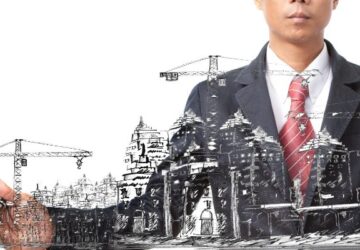The rapid development of artificial intelligence (AI) technology has made many jobs vulnerable to automation. While AI is not new, recent advancements in machine learning, deep learning, and natural language processing have led to significant strides in the technology’s capabilities. AI is now capable of handling many previously exclusive tasks to humans, leading to concerns about the potential job displacement of millions of workers.
In this article, we will discuss the ten jobs most at risk of being replaced by AI. While some of these jobs may not disappear entirely, they will undoubtedly be transformed, with machines taking over many tasks. We will also look at the potential impact of AI on the workforce and how workers can prepare themselves for the future.
Data Entry Clerks
Data entry clerks are responsible for inputting data into a computer system. This job is highly repetitive, and machines can now do it much faster and more accurately than humans. AI-powered software can read and interpret handwriting, making it possible for machines to automate this task entirely.
IT Specialist
AI can automate IT tasks, such as software updates and system backups. IT specialists are still necessary to ensure the systems run smoothly and address complex technical issues. AI has also transformed VPN technology. Now, you can secure VPN connections that can mitigate the threats to cybersecurity.
Telemarketers
Telemarketers make phone calls to sell products or services. This highly scripted job requires minimal skills, making it a prime candidate for automation. AI-powered chatbots and virtual assistants can now handle customer inquiries and sales pitches, making the need for human telemarketers obsolete.
Receptionists
Receptionists are responsible for answering phones and greeting visitors. With the rise of AI-powered virtual assistants, machines can now handle these tasks more efficiently than humans. Virtual assistants can also schedule appointments and manage calendars, making receptionists’ roles redundant.
Bookkeepers
Bookkeepers are responsible for recording financial transactions and preparing financial statements. AI-powered software can now automate many tasks, making bookkeepers’ roles obsolete. Machine learning algorithms can also analyze data more accurately and quickly than humans, making the software a more reliable option for accounting tasks.
Couriers and Delivery Drivers
Couriers and delivery drivers are responsible for transporting goods from one location to another. With the development of self-driving cars and drones, these jobs are at high risk of being replaced by machines. Companies like Amazon are already testing drone deliveries, and self-driving cars are becoming more common on our roads.
Cashiers
Cashiers are responsible for processing payments in retail stores. With the rise of self-checkout systems and AI-powered kiosks, this job is at high risk of being automated. Customers can now scan items and pay for them using their smartphones, eliminating the need for human cashiers.
Travel Agents
Travel agents are responsible for helping customers plan and book trips. With the rise of AI-powered travel booking platforms, many tasks can now be automated. AI algorithms can analyze customer data and make personalized recommendations, making it easier for customers to plan their trips without human assistance.
Bank Tellers
Bank tellers are responsible for handling customer transactions in banks. The need for human tellers is decreasing with the rise of online banking and AI-powered chatbots. Customers can now handle many banking tasks online or through chatbots, reducing the need for tellers in physical bank branches.
Manufacturing Workers
Manufacturing workers are responsible for assembling products in factories. With the development of industrial robots, many of these tasks can now be automated. Robots can work faster and more accurately than humans, reducing the need for human workers in manufacturing plants.
Customer Service Representatives
Customer service representatives are responsible for handling customer inquiries and complaints. With the rise of AI-powered chatbots and virtual assistants, many of these tasks can now be automated. Chatbots can handle simple inquiries, while virtual assistants provide more complex customer support.
Conclusion
The development of AI technology is rapidly transforming the job market, and many workers are at risk of being displaced. However, it’s important to note that not all jobs are equally at risk, and some industries will be more affected than others. While some jobs may disappear entirely, others will transformed, with machines taking over many tasks. Workers must adapt to these changes by acquiring new skills in demand in the AI-driven economy. It’s also essential for policymakers and businesses to ensure that workers adequately prepared for the future of work.







